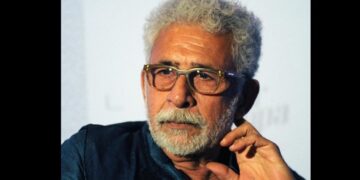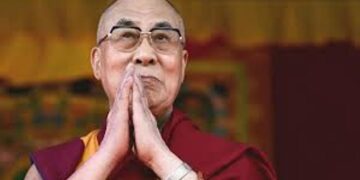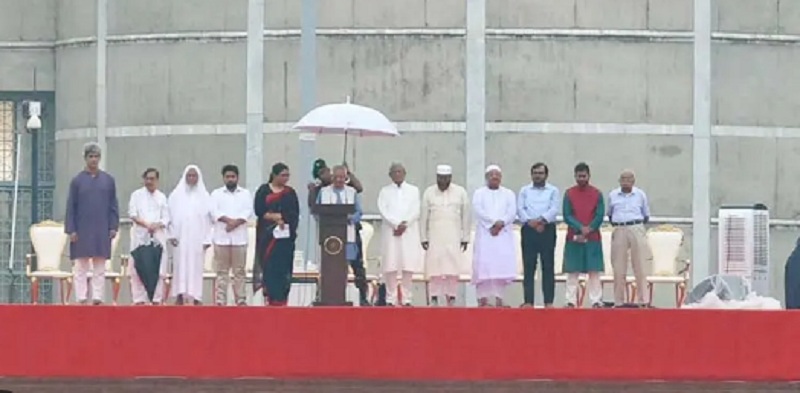Much fanfare had gone into it. But when Muhammad Yunus came forth with the so-called July Declaration on Tuesday, it did not look anything remotely like a declaration. It was, from beginning to end, a diatribe against the Awami League and against Sheikh Hasina.
In broad measure, it was a document that was prepared in clear contravention of Bangladesh’s history.
There was much use of the term ‘fascist’ to refer to the Awami League government. The irony was not lost on citizens: in the twelve months which have gone by since Yunus’ unconstitutional regime was imposed on the nation, fascism has been the order of the day.
Mobs swearing fealty to the regime have remained busy in action that is an eerie reminder of what happened decades ago in Nazi Germany, in Mussolini’s Italy, and Franco’s Spain.
Of course, the ‘July Declaration’ carefully stayed away from any reference to the anarchy the regime has presided over in the one year that has gone by.
Fascism has pushed former ministers, parliamentarians, journalists, theatre activists, civil servants and others into prison, with no one allowed due process in court.
To be sure, Yunus made no reference to that. It was a hollow declaration, given that two former chief election commissioners have been taken into police custody.
A former chief justice, manacled, was produced in court and then despatched to prison. Neither Yunus nor his advisors has demonstrated any remorse for such fascistic action.
Against such a background, the so-called July Declaration fell flat when Yunus decided to launch it on Tuesday. And why did it fall flat? A simple and predictable reason was there.
But no one was surprised, given the antipathy of the regime to the nation’s history. The ‘declaration’ had no reference to the roots of the War of Liberation.
It had no place for the 1971 Mujibnagar government. But those who drafted it, in what was certainly an uneducated way, quickly jumped to the Baksal question, as if Bangladesh’s history began with the passage of the fourth amendment to the Constitution in 1974.
The ‘declaration’ dripped with venom against the Awami League, in language reminiscent of the attitude to the party employed in the pre-liberation era by Pakistan’s rulers and their local Bengali collaborators.
And, yes, there was an interesting coincidence that citizens did not fail to notice as Yunus went on reading out the text of the ‘declaration’.
They recalled that it was on August 5, 1971, that the Yahya Khan military regime published a so-called white paper as a way of denigrating the Awami League and Bangabandhu Sheikh Mujibur Rahman before the world.
And on 5 August 2025, Yunus’ regime, as unconstitutional as Yahya’s, sought to persuade the world into believing in the ‘criminality’ of the Awami League.
Yahya Khan’s arguments did not hold water. Neither did Yunus’ arguments have any validity.
It was a selective history that the ‘July Declaration’ purported to highlight. Reference was made to November 7, 1975, the day when General Ziaur Rahman seized power in the country.
It was a moment which pleased the BNP leadership, sharing the dais with Yunus. But the ‘declaration’ made no mention of the assassination of Bangabandhu and his family on August 15, 1975, and the murder in prison of four national leaders in November 1975.
The killings of scores of senior military officers on and after November 7 were carefully pushed under the rug. Absolutely no mention was made of the hundreds of soldiers and air force men secretly tried and killed on Zia’s orders in the aftermath of the many coup attempts against him.
Yunus and the BNP were, if the ‘declaration’ is any guide, on the same page on Tuesday. Naturally, for praise was there aplenty for General Zia’s dictatorship.
The Zia period was characterised as one which took Bangladesh back to democracy. Contrarily, General Hussein Muhammad Ershad’s nine-year rule was demonised as a negation of democracy.
The 2007-2009 military-backed caretaker government was not spared either. Overlooked was the sinister role played by President Iajuddin Ahmed as caretaker chief in attempts to manipulate the election in favour of the Bangladesh Nationalist Party before the army compelled him to vacate the office of chief advisor and impose a state of emergency in the country.
The caretaker regime, headed by Fakhruddin Ahmed, presided over a free and fair election which brought the Awami League back to power in early 2009.
Yunus made it sound as if the December 2008 election was a ploy to take Sheikh Hasina to the road to authoritarianism.
In the end, the ‘July Declaration’ was hardly a declaration. It was a list of invectives directed at Sheikh Hasina and the Awami League. It was a brazen attempt to rewrite history. Citizens were not impressed by Yunus’ promise to hold elections in February next year.
The suspicion that the regime will find excuses to keep the elections at bay has lately been making the rounds. But sounds are being heard, those that speak of the interim regime looking for an exit route from power.
Conditions remain depressing in Bangladesh. And yet there are hints of light. Two freedom fighters, one of them a prominent human rights lawyer, have formed Moncho ’71, an organisation which aims to uphold and propagate the spirit of the War of Liberation in these difficult times for the country.
Light was spotted as well on Tuesday when a group of students at Dhaka University forced some people, who were trying to put up portraits of the 1971 Pakistani collaborators hanged under the Awami League government, to bring them down.
The action earned wide support on social media. It was followed by bands of Dhaka University students bringing out processions on the campus in support of Sheikh Hasina and in condemnation of the unconstitutional regime now operating in Bangladesh.
ALSO READ: Bangladesh: A year of living dangerously
So, signs are there that the July Declaration, in light of recent civil resistance – as witnessed in Dhaka University and Gopalganj – could very well signal the beginning of the decline of those who compiled this 28-paragraph diatribe. That would be a delicious and indeed befitting, irony, especially if it rids the country of this unconstitutional interim government and its uncouth backers.















